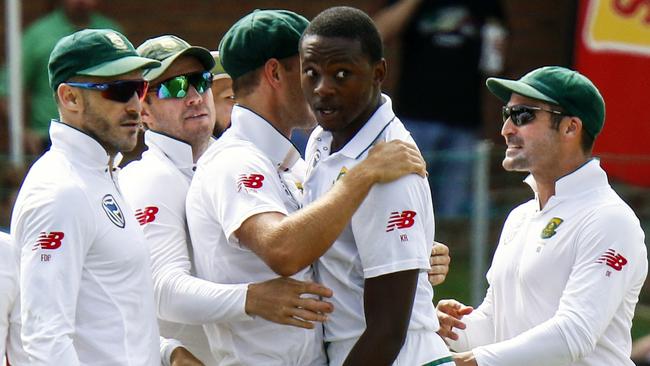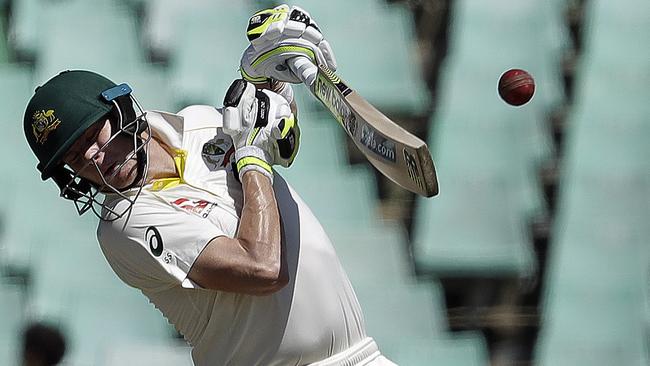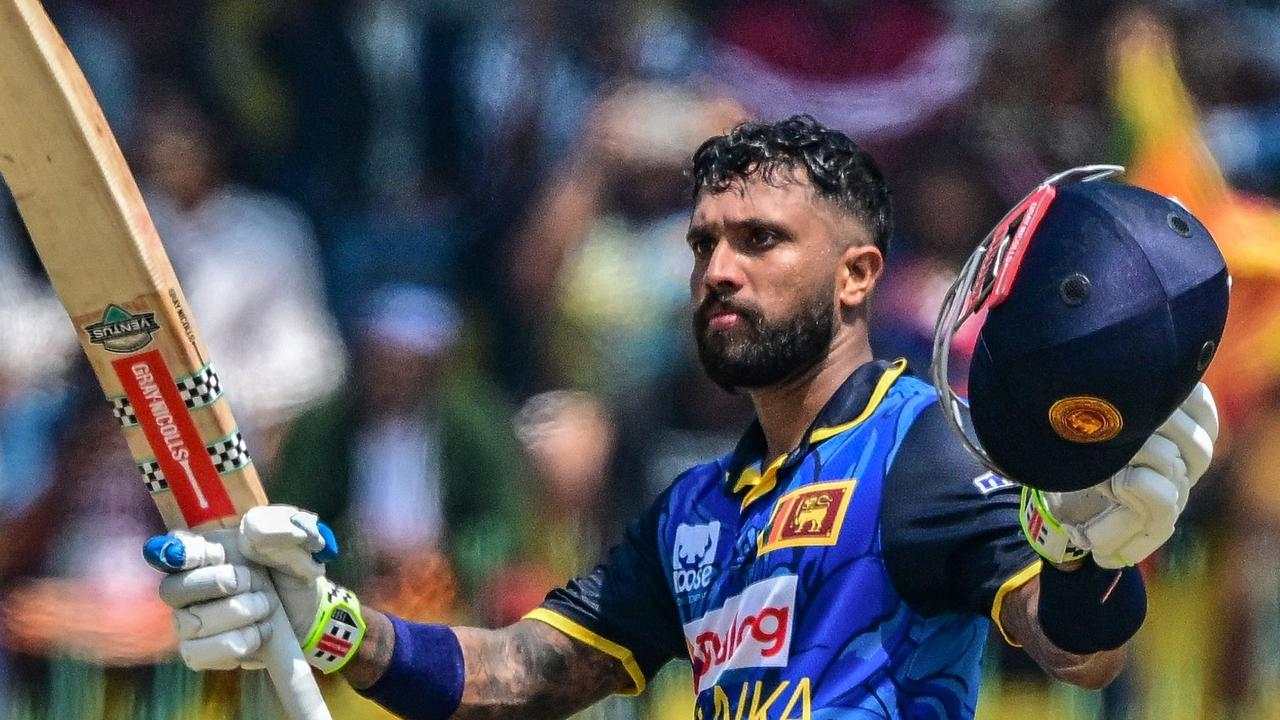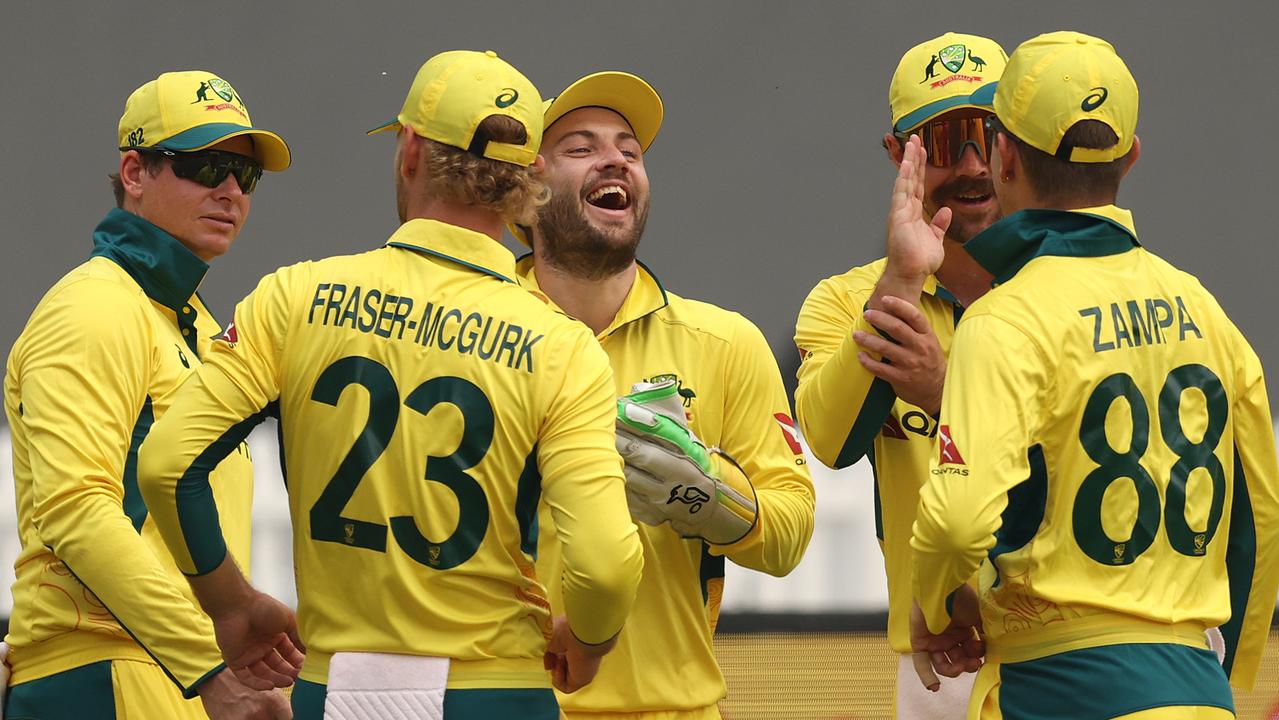Australia vs South Africa: Kagiso Rabada cleared to play rest of series
The ICC has produced a stunning decision that paves the way for the fiery, matchwinning paceman to again torment Australia.

Star South African paceman Kagiso Rabada has been cleared to play the rest of the series against Australia.
It is great news for the 22-year-old and his side, who levelled the series on the back of the quick’s 11-150 at Port Elizabeth last week. But it will disappoint umpires and match referees who have been undermined by the ICC appeals process.
The ICC announced today that an appeal against Rabada’s code of conduct breach, which resulted in a two-Test ban, had been successful.
“South Africa bowler Kagiso Rabada has been found not guilty of the charge of making inappropriate and deliberate physical contact with a player (Steve Smith) following a hearing before the Right Honourable Michael Heron QC yesterday,” the organisation said in a release.
Rabada was found guilty of conduct that is contrary to the spirit of the game, an offence under Article 2.1.
He had been sanctioned three demerit points, but with the lower charge it came down to one demerit point taking him to a total of seven — one below the threshold of eight which brings about an automatic two match suspension.
“The key issue is whether Mr Rabada made ‘inappropriate and deliberate physical contact’ with Mr Smith. I am not ‘comfortably satisfied’ that Mr Rabada intended to make contact and I therefore find him not guilty of the charge under 2.2.7,” Mr Heron said.
“I am entitled, however, to consider whether the conduct involved constitutes a lower level offence. I consider the conduct was inappropriate, lacked respect for his fellow player and involved non-deliberate and minor contact. The actions contravened the principle that a dismissed batsman should be left alone.
“I consider a penalty of the imposition of a fine of 25 per cent of the applicable match fee to be the appropriate penalty for the breach of Article 2.1.1. As a consequence, 1 demerit point accrues. Mr Rabada will be well aware of the consequences of any further breaches of the code.”
Lawyers in three countries argued for six hours via video conference on Monday as Cricket South Africa did its level best to get Rabada off his code of conduct charges and on to the team sheet for the third and fourth Tests.

The hearing began at 9am local time (6pm AEDT) with Cricket South Africa’s high-profile legal representatives, Rabada and team officials in a room at the Marriott hotel in Cape Town — the same hotel where David Warner gave evidence from to the Phillip Hughes inquest in 2016.
Rabada was represented by respected South African defence lawyer, Dali Mpofu, who was assisted by junior advocate Kerusha Pillay. Cricket South Africa counsel Matt Kemp was also in the appeal hearing.
Judicial Commission New Zealand QC, Michael Heron, listened to their appeal against the Level 2 Code of Conduct conviction for “inappropriate and deliberate physical contact” with Steve Smith in the first innings of the game at Newlands and the 3 demerit points which resulted.
That and another a one demerit point picked up for a send off of David Warner in the second innings took Rabada to nine demerit points — past the eight point threshold which triggers a two match suspension.
The ICC was also involved in the case via video link from Dubai.
The ICC issued a warning to players yesterday.
“The ICC wholly accepts today’s decision and I would like to thank Mr Heron for overseeing the hearing in a short time frame before the next Test starts in South Africa,” chief executive David Richardson said.
“This is perhaps an opportune moment to remind all players of their responsibilities to maintaining a standard of behaviour which sets a good example to players at all levels of the game, especially the young players. We want to see the game played with skill, passion and respect for the opposition, the match officials and the laws.”
It is assumed match referee from the game, Jeff Crowe, was also involved.
South African team manager Dr Mohammed Moosajee spoke outside the hearing but said he was restricted from revealing the legal arguments or witnesses.
The ICC has no interest in transparency with its code of conduct hearings and those involved have said in the past there is a lot of trade-offs and compromises involved — at least at the initial hearings.
“The hearing is done and took place from early this morning at 9am and it’s been a marathon session,” Dr Moosajee said. “But now it sits with the ICC and we have to wait for the outcome.
“I think in any hearing you’ve got to be as happy as you can be, we’ve put our side of the story across and now it’s up to the Judicial Commissioner to make a stand on what he thinks.
“The merits of the case we can’t really talk about because it sits with the Judicial Commissioner at the moment. So until the ruling is made it would be impractical for us to say anything.”
The South Africans are believed to have argued that Rabada’s actions weren’t deliberate, and there is little consistency in the application of the ICC’s Code of Conduct.
“I think we’ll be able to comment on that once we have the ruling,” DOR Moosajee said. “We can have a proper conversation after that.”




